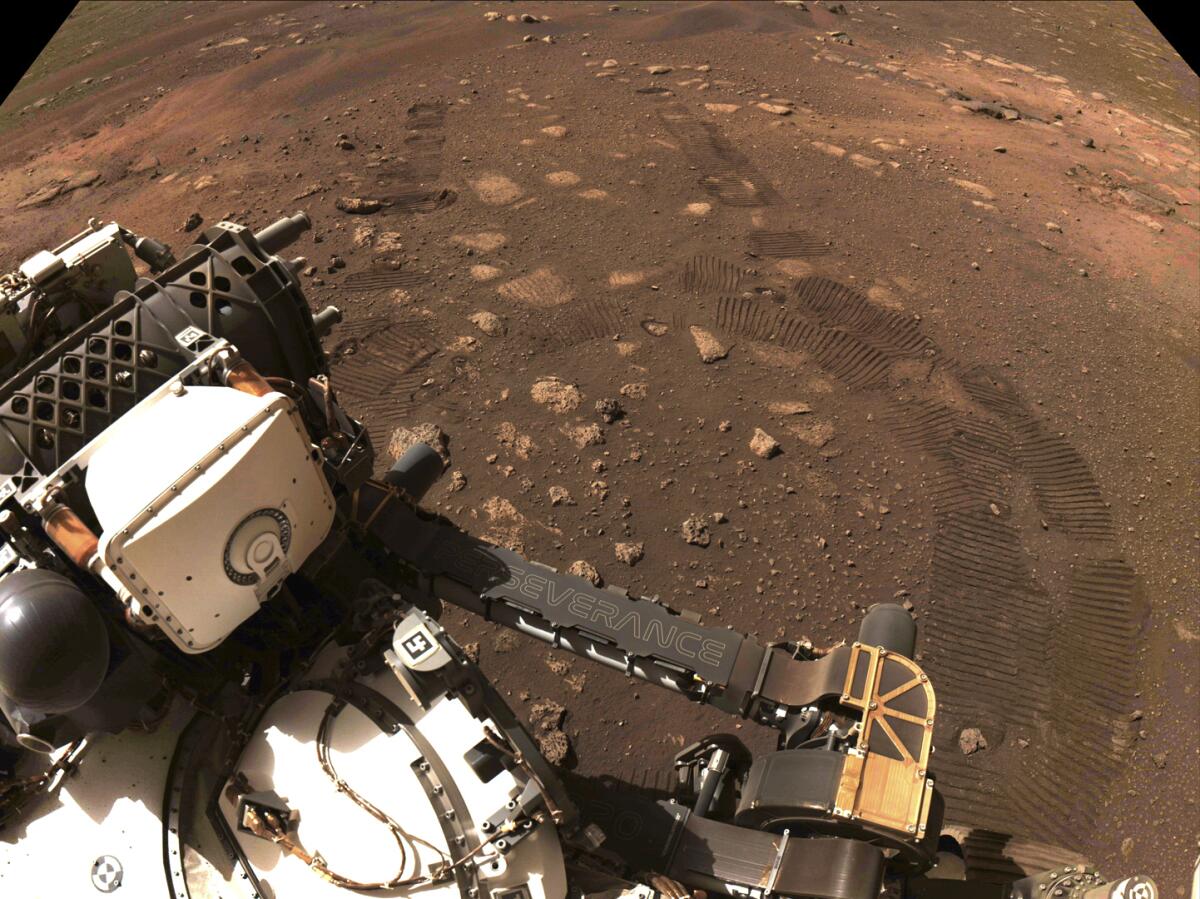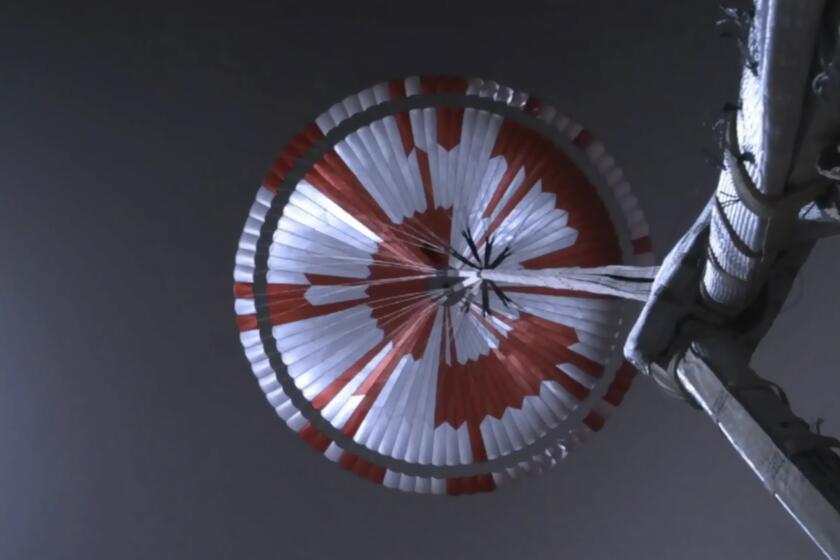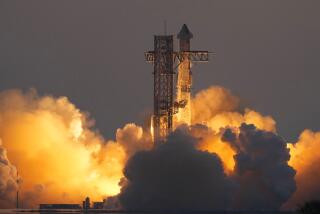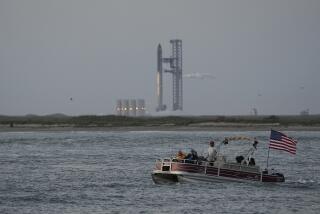NASA’s Perseverance rover takes first test drive on Mars

- Share via
CAPE CANAVERAL, Fla. — NASA’s newest Mars rover hit the dusty red road this week, putting 21 feet on the odometer in its first test drive.
The Perseverance rover ventured from its landing position Thursday, two weeks after setting down on the red planet to seek signs of past life.
The back-and-forth drive lasted just 33 minutes and went so well that more driving was scheduled for Friday and Saturday.
“This is really the start of our journey here,” said Rich Rieber, the NASA engineer who plotted the route. “This is going to be like the Odyssey, adventures along the way, hopefully no Cyclops, and I’m sure there will be stories aplenty written about it.”
In its first drive, Perseverance went forward 13 feet, took a 150-degree left turn, then backed up 8 feet. During a news conference Friday, NASA’s Jet Propulsion Laboratory in La Cañada Flintridge shared photos of the tracks over and around small rocks.
Systems engineer Ian Clark used a binary code to spell out a message in the orange-and-white strips of the rover’s parachute.
“I don’t think I’ve ever been happier to see wheel tracks, and I’ve seen a lot of them,” said engineer Anais Zarifian.
Flight controllers are still checking all of Perseverance’s systems. The rover’s 7-foot robot arm, for instance, flexed its muscles for the first time Tuesday. So far, everything looks good.
Before the six-wheel, car-size rover can head for an ancient river delta to collect rocks for eventual return to Earth, it must drop its protective “belly pan” and release an experimental helicopter named Ingenuity.
As it turns out, Perseverance landed right on the edge of a potential helicopter landing strip — a nice, flat spot, according to Rieber. So the plan is to drive out of this landing strip, ditch the pan, then return for Ingenuity’s highly anticipated test flight. All this should be accomplished by late spring.
Scientists are debating whether to take the smoother route to get to the nearby delta or a possibly tougher way with intriguing remnants from that once-watery time 3 billion to 4 billion years ago.
Perseverance — NASA’s biggest and most elaborate rover yet — on Feb. 18 became the ninth U.S. spacecraft to successfully land on Mars. China hopes to land its smaller rover — currently orbiting the red planet — in another few months.
NASA scientists, meanwhile, announced Friday that they’ve named Perseverance’s touchdown site in honor of the late writer Octavia E. Butler, who grew up next door to the Jet Propulsion Laboratory and was one of the first African Americans to receive mainstream attention for science fiction. Her works included “Bloodchild and Other Stories” and “Parable of the Sower.”
The Associated Press Health and Science Department receives support from the Howard Hughes Medical Institute’s Department of Science Education. The AP is solely responsible for all content.







